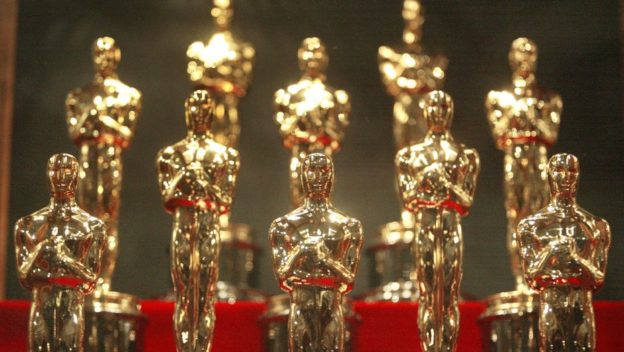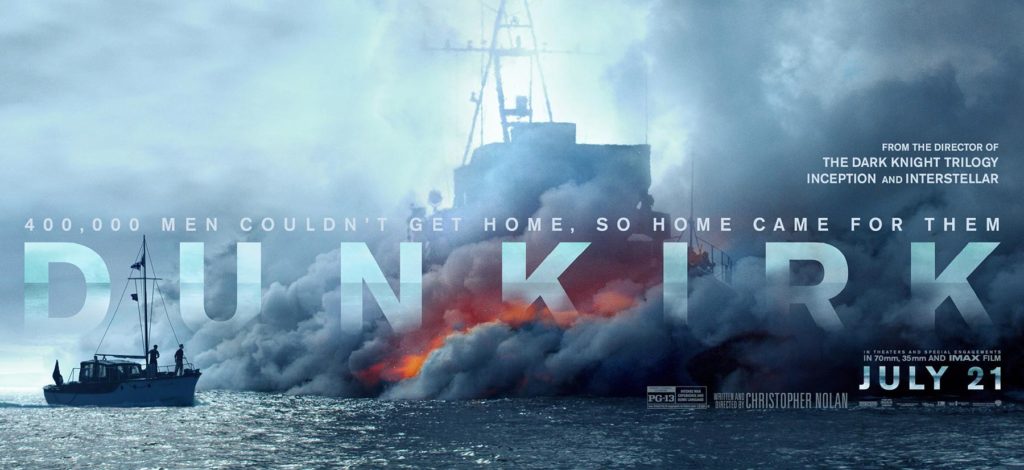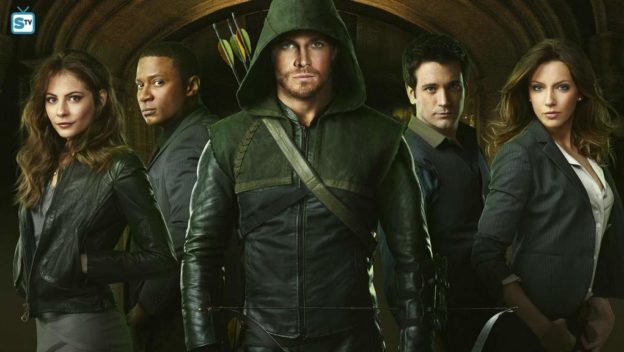The Oscars are just around the corner, and despite deep flaws in their voting board and a long, storied history of blown calls, they remain my Superbowl. They’ve once again rolled out nine films they’ve nominated as best of the year, once again I have some quibbles, but not on the same level as, say, last year.
Once again, I’ve seen them all (only partially so you don’t have to), and once again I’m here to rank them for you, say if they’re worth your time, and whether or not I think they’d even exist without Oscar season.
Enough intro. Lots to cover. Allons-y, Alonso.
9. MoonWhite
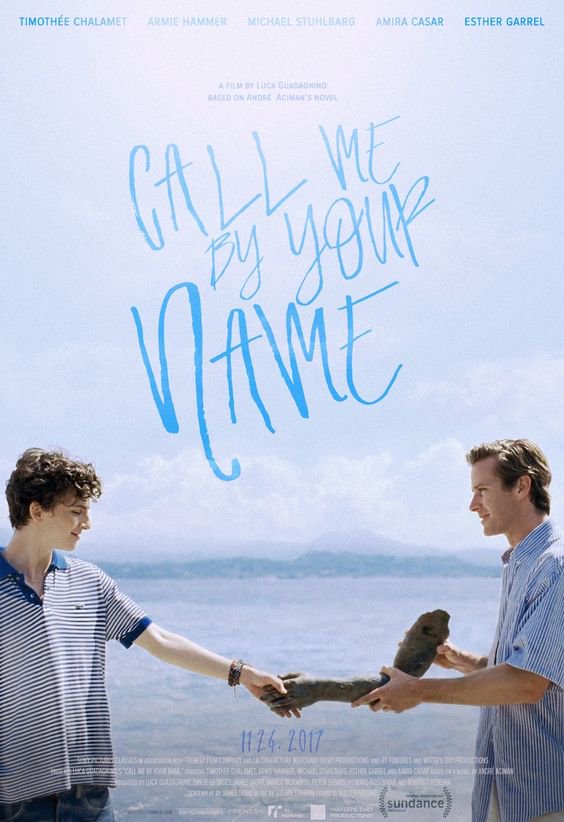
I kid, I kid, the only thing this and last year’s winner have in common is gay youths finding their chosen loves difficult to pursue. I mean, that’s all they can have in common. Turns out that being gay, like everything on this Earth save for pulling off cornrows, is way easier when you’re rich and white rather than poor and black. So if this isn’t Moonlight, what is it?
In the early 80s Elio, his father the American professor (Oscar Season 2017 MVP Michael Stuhlbarg) and his French (Italian? Both?) mother, are spending the summer at the family’s villa in small-town Italy. When his father’s summer research assistant, Oliver (Armie Hammer), arrives… eh, describing it in detail bores me. They don’t like each other, but that’s because they do like each other and this isn’t the easiest time to be gay, even in Europe, and then eventually they bang until the summer ends. There are a lot of pretty shots of the lush Italian countryside and a heartfelt speech from Stuhlbarg near the end, but that’s basically it. It’s a well-acted, prettily shot, but paint-by-numbers star-crossed romance flick that happens to have arrived at a time when doing a movie like this about two men is no longer so scandalous that it would earn an X rating and be banished to the back shelves of independent video stores, but not so commonplace that it doesn’t garner attention.
And frankly… it’s slow and a little dull. The stakes are low, the editing is self-indulgent, the whole thing is at least half an hour longer than it needs to be, the ending is soft (the only other thing it has in common with Moonlight)… it’s not great. Not, I would argue, Oscar calibre. I can think of several movies from last year that deserved the nomination more… The Big Sick, The Greatest Showman, and even War for the Planet of the Apes off the top of my head.
And as to the title… as pillow talk, Oliver says to Elio “Call me by your name… and I’ll call you by mine.” And Elio goes for it, instead of saying “Those are terrible codenames, everyone will see right through them” or the more simplistic “What? Why?” Naming the book/movie after this one doofy moment is like calling the first X-Men movie “What Happens to a Toad When It Gets Struck by Lightning,” or calling Age of Ultron “Avengers: Thor’s Magical Spa Day.”
Would you have watched it without Oscar nominations? I doubt it? Not my usual thing.
Glad you did? I’m not upset that I watched it, but… before long, I will forget it, and its absence in my memory will leave no hole.
Would it exist without Oscar Season? There’s every chance.
Oscars How White? Rich people in rural Italy in the 80s. If this movie were any more white it would be an albino.
8. That Other Time Fighting Nazis Was Somehow a Controversy
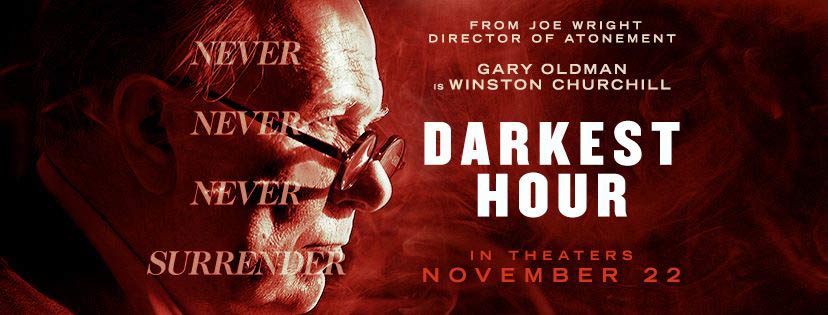
(“Boring Dunkirk” was already taken, damn it)
Darkest Hour focuses on the rocky first month of Winston Churchill’s first stint as Prime Minister of Great Britain, from when Neville Chamberlain resigned as PM due to the opposition parties’ unwillingness to form a coalition with the architect of the appeasement policy, to the day of Operation Dynamo, the civilian-aided evacuation of the British forces from Dunkirk. During this time, Churchill tried to rally his country for war against Hitler, while facing pressure from Chamberlain and his first choice of successor, Viscount Halifax, to instead negotiate peace.
Chamberlain valued peace. He didn’t want his country in a second world war. Any other time in history, that might have been admirable. As it stands, his legacy is to be a historical cautionary tale, and to be one of the antagonists in a movie about his successor.
Gary Oldman is nigh-unrecognizable as Churchill, and he gives his usual great performance, so it has that going for it. But that’s kind of the problem. It feels like it exists as a “Great man in his most noble moment” Oscar-bait biopic and that is a genre I feel needs to die. There isn’t a lot of tension nor engaging material in watching Churchill attempt to keep his position and motivate the government to stay in the war. Movies about “that guy you’ve heard of is just as great as you’ve been told, and here’s an actor trolling for an Oscar playing him” just feel a little… empty.
Also I can’t watch this sort of biopic and not wonder how hard they’re working to make the adversaries worse than they need to be. Chamberlain isn’t done many favours (that he was dying and just wanted to see his nation at peace before the end is a little sympathetic?), but Halifax? With his angry glowers, unflattering hair, and Elmer Fudd speech impediment (which might be historically accurate, I don’t know), he is played as a straight-up villain. He didn’t want to be at war with Germany because they’d just watched all of western Europe be conquered at alarming speed, and he didn’t want England to be next. Sure it was the wrong call, we all know that now, obviously there’s no way to depict “Let’s negotiate with Hitler” positively, I’m just saying that maybe history is judging them enough and they didn’t need to play Halifax like he murders puppies when he gets home.
Parliment is well-shot, though.
Would you have watched it without Oscar nominations? Maybe? I do like Gary Oldman.
Glad you did? Eh.
Would it exist without Oscar Season? This movie reeks of “Win Gary Oldman an Oscar.”
Oscars How White? There’s a black guy in a pivotal scene in the London underground. He gets lines and a name and everything. Which sounds like a goddamn pittance but puts this one in the top half, diversity-wise.
7. Obsessive Compulsive Vs. Passive Aggressive: A Love Story
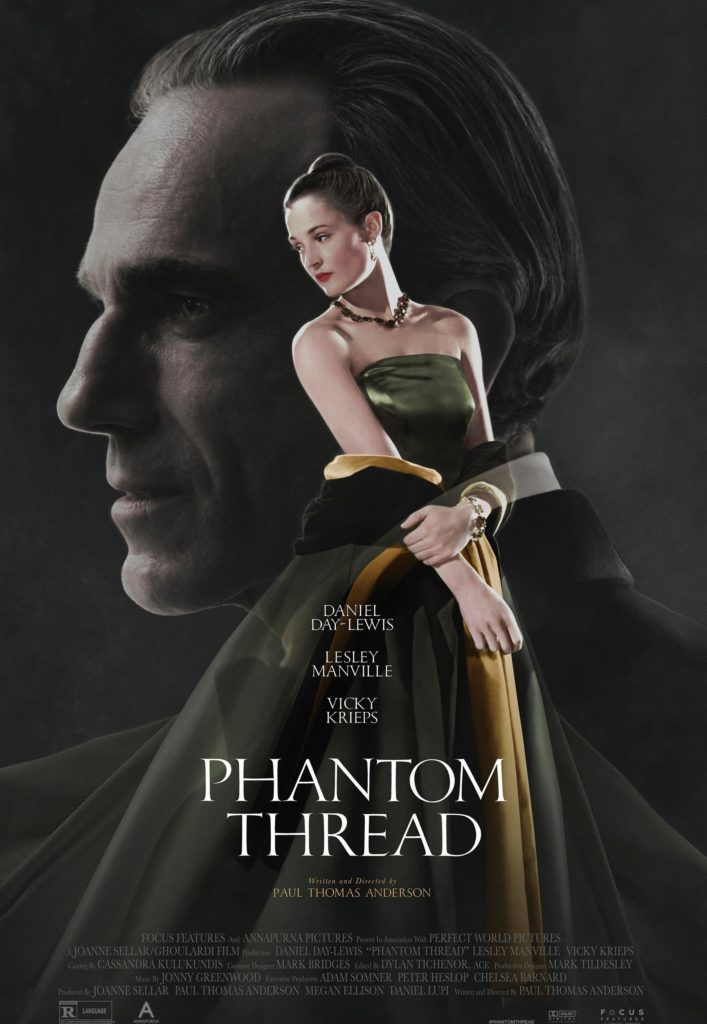
Phantom Menace Tollbooth Thread is the story of a waitress named Alma, who encounters a famous dress-maker named Reynolds Woodcock (Daniel Day-Lewis, in what he’s claiming is his retirement performance). Some would say Woodcock is the central character. I dispute that assertion. Anyway, Woodcock asks Alma to be his live-in model, she falls in love with him, buuuut…
See, in their very first interactions, Woodcock makes it abundantly clear that he is extremely controlling. Sure, at first he does it with a smile on his face and a song in his heart but still. Shortly thereafter, he also makes it abundantly clear that his routines and his work will always take precedence over the happiness, comfort, or any feelings of those around him, save possibly for Cyril, his razor-tongued sister and business partner. But despite his cold-to-the-point-of-cruel reactions to any kind gesture Alma makes that even remotely disturbs his work or habits, she is determined to be allowed to love him and be loved back on her terms.
Also I get the feeling he’s supposed to be gay. When she asks him why he never married, he gives the following responses:
“I make dresses.”
“I’m a confirmed bachelor. Incurable.”
“Marrying would be deceitful.”
At least one of those is old-timey-Hollywood code for “homosexual.”
But that ultimately doesn’t matter to the story. The point is, she wants to be a partner, but he’s determined to treat her like an accessory, and their various dysfunctions go to quiet, bitchy war.
This one gets tons of hype behind it, because Paul Thomas Anderson is a known quantity for quality films and Daniel Day-Lewis doesn’t get out of bed if there’s not an Oscar nomination in it for him, but it’s… just pretty okay. I didn’t see anything that special in it. Also, Day-Lewis will not be getting one last Oscar. His performance is good, but subtle. The Academy doesn’t have a track record of rewarding subtlety, especially not when “Bombastic, in a biopic, with a lot of facial prosthetics” is on the table.
Also… I know there is nothing to this, but… the director’s name is two letters away from the auteur of the implausibly successful Resident Evil movies, Uwe Boll thinks they stole his poster design for Bloodrayne, and the male lead shares a penis-joke of a name with a failed and terrible-looking Billy Bob Thornton comedy. All of that is meaningless but it’s a weird confluence of shit cinema surrounding a prestige picture.
Would you have watched it without Oscar nominations? Doubtful.
Glad you did? The ending was actually pretty neat, but it was a long road to get there.
Would it exist without Oscar Season? Paul Thomas Anderson and Daniel Day-Lewis do not work together for other reasons.
Oscars How White? Like the driven goddamn snow.
6. Remember Journalism? Man. Those were the days.

Jebas, the cast on this thing. Even aside from Streep and Hanks, nearly every frame had someone I know and like from somewhere. Alison Brie, Zach Woods, Carrie Coon, Bruce Greenwood, Bradley Whitford, Fat Matt Damon Jesse Plemons… David Cross and Bob Odenkirk? Big year for sketch comics doing prestige pics. But it is a Spielberg picture. People show up for Spielberg.
Meryl Streep is Katharine Graham, the publisher of the Washington Post, first female publisher of a major American newspaper. Tom Hanks is her editor-in-chief, who’s eager to publish the leaked Pentagon Papers which revealed damaging secrets about America’s involvement in Vietnam. A masterful director and solid cast tackling a topic of depressing relevance: the responsibility of news media to hold the government accountable. But as legendary and Oscar-attracting as Spielberg, Hanks, and Streep are… this isn’t really any of their best work. I mean, even Spielberg’s B-game is pretty watchable, but this one is likely to get shut out and not for no reason.
Would you have watched it without Oscar nominations? I’d have gotten to it.
Glad you did? Yep.
Would it exist without Oscar Season? You know at this point I think Spielberg, Streep, and Hanks just do whatever they want and if it gets Oscars, it gets Oscars.
Oscars How White? Couple of black women in the crowd scenes. Jesus. This is a white-ass year.
5. Worst Layover Ever
The British army, in full retreat from the Nazis, find themselves trapped on a beach in Dunkirk, waiting for a miracle, while a massive fleet of civilian craft sailed in an attempt to rescue the troops before the panzers arrived. Christopher Nolan tells the story through three perspectives, each with a different time frame: the men in Dunkirk (primarily Tommy, who is particularly eager to get away), which covers a week; one of the boats heading for Dunkirk, and a rescued sailor quite determined not to go back to Dunkirk, which covers a day; and one air force pilot (Tom Hardy, doing some intense but silent eye-acting for most of his screentime) desperately trying to keep the German bombers from sinking the rescue ships, which covers an hour.
The various, non-synced timelines mean we encounter a few key moments from multiple perspectives, but if you’re paying attention it’s not hard to follow. Actually kind of cool realizing that the “sea” plot has caught up to “air” and whatnot.
It’s super tense, well done, and there are some solid performances throughout. I just ultimately liked a few others more.
Would you have watched it without Oscar nominations? I never miss a Nolan movie except Interstellar for some reason.
Glad you did? Yeppers.
Would it exist without Oscar Season? The Oscars have taught Nolan to make movies for other reasons.
Oscars How White? White chocolate dipped in vanilla. Come on, man, there had to be people of colour in that army. They had an empire.
4. Awful People Trying to Do Good, also Explosions
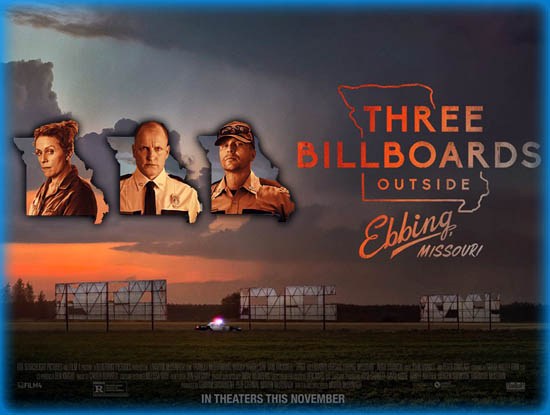
You’ve heard of this one. Grieving mother Mildred (Frances McDormand, who makes the character a force of nature), filled with anger that her daughter’s killer hasn’t been caught yet, rents out three billboards to shame the local police chief (Woody Harrelson), angering many in the town. None more so than Deputy Dixon (Sam Rockwell), who has problems with anger. And alcohol. And racism. And basic human empathy. He’s a mean drunk with a badge.
Writer/director Martin McDonagh is pretty good at throwing together deeply flawed people and getting a pretty solid story out of them (In Bruges, Seven Psychopaths). The central theme this time around is that people in pain lash out. Mildred lashes out at the police (and others), Dixon lashes out at her, her billboards, and anyone connected to them. Also it’s made clear he does this a lot.
That, then, is the centre of the Three Billboards backlash: the redemption arc for the violent, racist, drunk cop. Because I guess people would rather that bad people stay bad people? I mean the point, right, the point of his arc is not that “Sure he’s a racist, violent thug of a cop, but that doesn’t mean he’s all bad.” The first step of his redemption is realizing, with a push from the chief, that he is a bad person now, but he doesn’t have to stay that way. Woody Harrelson delivers a beautiful speech, the central thesis of which is “Hate never solved nothing, but calm did.” Or as The Doctor put it… “Hate is always foolish, and love is always wise.”
Because a topic the film tackles, one that I am just now seeing, actually, is that perhaps the line between justice and revenge is love and forgiveness. The chief gives Dixon the push, but an act of forgiveness that he had not earned makes sure the push takes. Whereas Mildred’s rage just brings more destruction.
There are a lot of layers here. A lot to unpack. Which is why it ranks higher than the others: sometimes I’d rather my best picture nominees start a conversation rather than just say “Wasn’t Churchill great,” or “There was a time when Stephen Hawking was bangable.” Also it’s got a great cast bringing their respective A-games.
Would you have watched it without Oscar nominations? I had every intention.
Glad you did? Indeedy.
Would it exist without Oscar Season? This is the first real Oscar buzz McDonagh’s gotten, so I imagine so.
Oscars How White? Just “Mostly.”
3. None Suffer Like White Drama Kids

A coming of age tale set in Sacramento, California, Lady Bird is about a teen girl (Saoirse Ronan, earning the crap out of her third Oscar nomination) on the verge of college trying to find an identity outside of her parents. Her family’s poor, her mother is passive aggressive, controlling, and short on kindness, so she tries to break away. By changing her name to Lady Bird, dating boys (with a few variations of failure on that score), getting into drama (though not exactly landing any leads), trying to trade up friend groups, and eyeing school in New York, waaaaaay away from home, which her parents do not love.
Do I have anything in common with Lady Bird? No. Well, mostly no. I was a drama kid and there was a hot minute in grade, I wanna say three, when I thought I wanted my name to be Robert instead of Dan. Then my dad called me “Robert” to play along and it felt weird and I never brought it up again. I lacked Lady Bird’s commitment to reinvention. Where was I? Right. I’m not much like Lady Bird, but I surely connected with her more than that stoner punk from Boyhood. It’s a film rich in charm, wit, and emotion, with outstanding performances from Ronan and Laurie Metcalf (poor woman, stuck doing the Trump Apologist Roseanne Reunion). I quite adored this movie.
Would you have watched it without Oscar nominations? Look, she may have had to do an American accent, but if Saoirse Ronan is involved I’m probably gonna show up. She is concentrated adorable.
Glad you did? Oh my yes.
Would it exist without Oscar Season? Yes, but the studio would have buried it and we’d be poorer for not knowing it exists.
Oscars How White? A few people of colour in significant supporting roles. So, “Very.” Very white.
2. Aquaman Begins
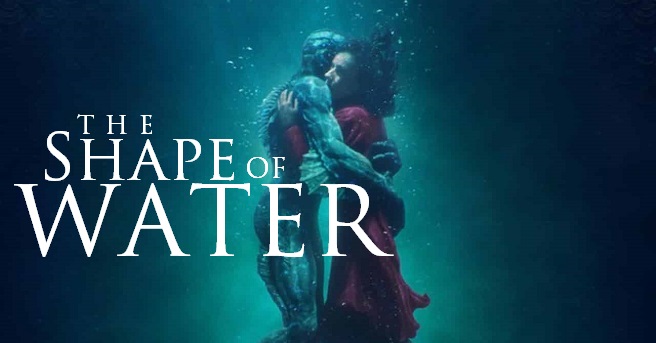
(Again, someone funnier beat me to “Grinding Nemo,” god damn it)
Elisa, a mute woman working as a cleaner at a government lab, encounters their latest discovery: a fish man brought up from the Amazon. She and the fish man grow attached to each other, but the head agent is more interested in torturing and vivisecting him to see if they can find something to help with the space race. Elisa, her friends, and a surprising ally scheme to liberate Fishy.
Also Elisa wants to tap that amphibian ass.
Guillermo Del Toro directed one hell of a romance adventure here. Visually it’s great, the cast is outstanding, and it’s subtly subversive. Well, maybe not that subtle. I’ll explain. Who are the heroes? A mute, a black woman, an older gay man, and a communist. Outsiders. The marginalized. Who’s the villain? A personification of white US-style patriarchy and intolerance. People who find something miraculous and want to tear it apart to see how it works. People who see outsiders and think of them as “less than.” It makes the case that pretty is no substitute for kind.
Quite delightful, this one.
Would you have watched it without Oscar nominations? Sure would. Looked fun, was fun.
Glad you did? Darn tootin’.
Would it exist without Oscar Season? Nothing about this screams “Oscars” at all. Quality won out over Oscar bait box-checking.
Oscars How White? Octavia Spencer has the largest role for a person of colour in eight out of nine best picture nominees, but pretty damn white. The fish-man counts as “white,” ’cause the actor is white.
1. White People are Horror Monsters, Literally This Time
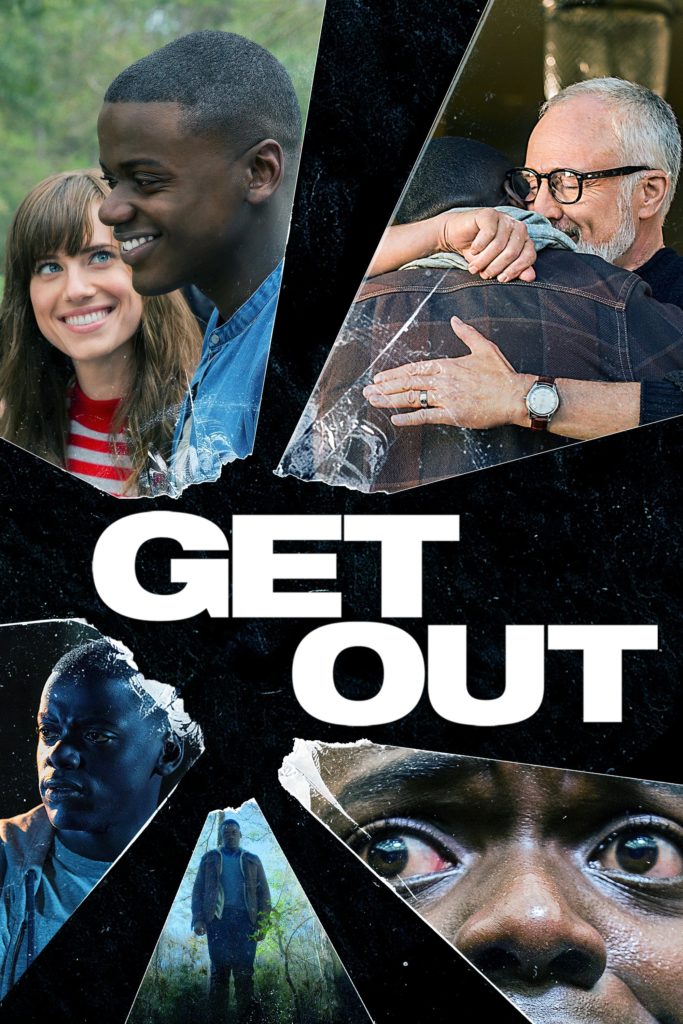
A horror movie directed by a sketch comedian with black protagonists is a serious Oscar contender? Is this real life?
Whoo boy this one was a ride. Tense, creepy as all get-out, Jordan Peele in his directorial debut nailed racial awkwardness as horror fodder. See, it’s not that the villains are stereotypically racist. They don’t hate black people. They seem to even admire them. But that doesn’t make them good people, that doesn’t make them good at dealing with race. They still try to claim ownership of black bodies. The whole situation is demonstrably uncomfortable even before the really creepy part kicks in. It’s like it’s calling out white liberals, saying “Hey, you’re not as woke as you think.”
And man is that the horror movie America needs, since it turns out a huge swath of the country was so mad about eight years of a black president that they would elect an incompetent orangutan to the White House if it meant undoing Obama’s legacy. [spoiler title=’You probably know this but just in case…’ style=’default’ collapse_link=’true’]And because so many white viewers can’t process that Allison Williams’ character is indeed just as much of a monster as she seems. No she’s not mind controlled, no she’s not a victim, she harvests black bodies and keeps trophies, that is some evil right there.[/spoiler] When people show you who they are, believe them. Otherwise you end up married to mentally abusive dressmakers. FULL CIRCLE! BOOM! … Crap, Phantom Thread was number seven. Less of a circle and more of a spiral. Damn it.
Would you have watched it without Oscar nominations? I did. I did watch it without Oscar nominations.
Glad you did? Surely am.
Would it exist without Oscar Season? A black-led horror movie released in February? They can’t have thought Oscars were on the table.
Oscars How White? Only, like, half white! And the good guys are both black!
…Not the best year. Nothing was Fences bad, but nothing was Spotlight good, either. The prestige picture industry was so off their game that a horror film and a fantasy romance snuck onto the shortlist.
Also a really damn white year. Get Out and Black Panther are not swinging that pendulum as fast as you’d like.

